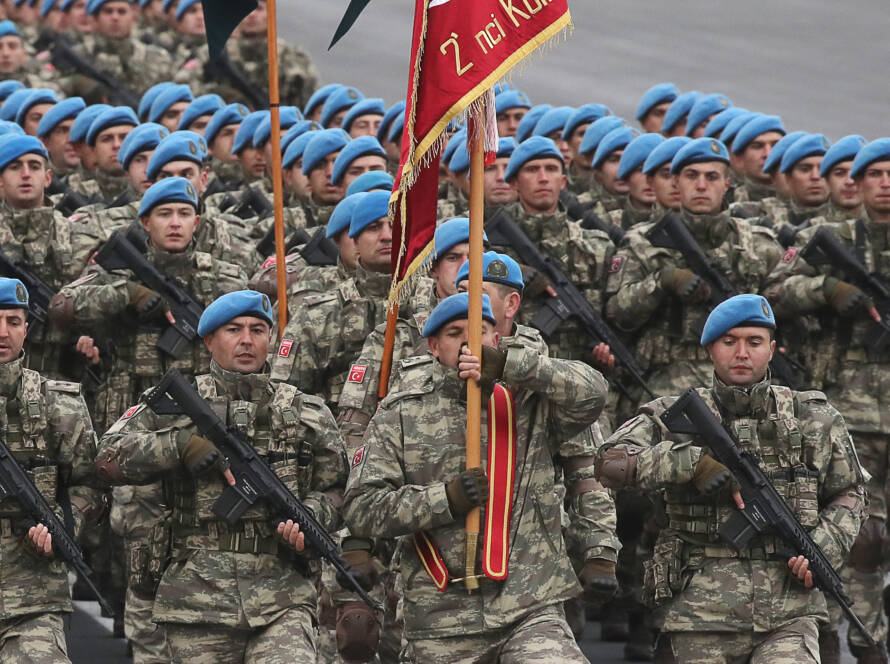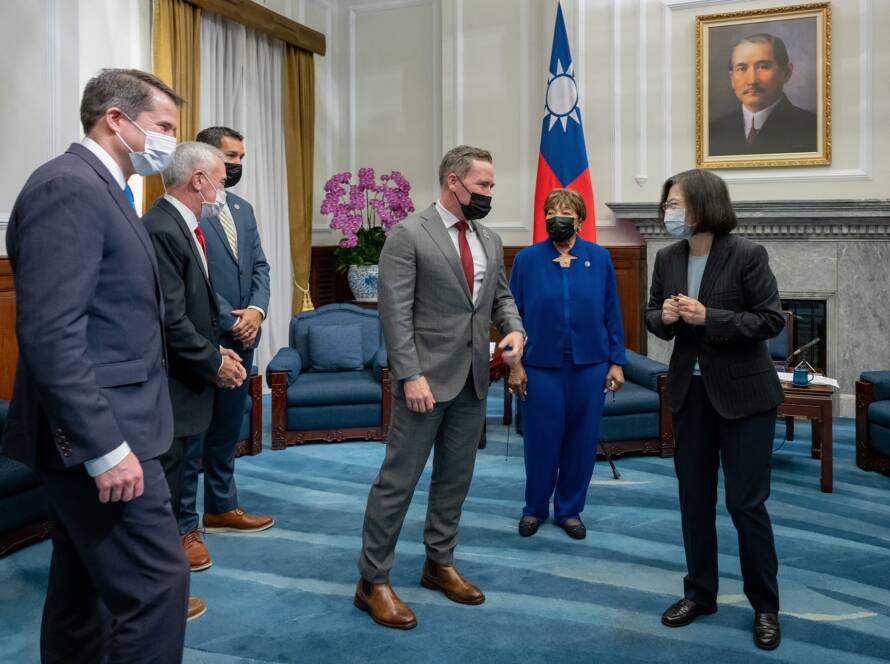Manipulating Euro-Asian tensions in historiography and modern media
By Vinod Moonesinghe
Herodotus said that the Greeks retaliated to some Phoenicians kidnapping Io, an Argive princess, by kidnapping Europa, a Phoenician princess. These tit-for-tat abductions continued until Paris of Troy abducted Helen, wife of Menelaus of Sparta. The Persians considered the heavy-handed Greek retaliation as the beginning of a conflict between “Europe” and “Asia”.
Western historiographers of the modern era constructed on this legendary premise a mythical “clash of civilizations”. This concept spilt over into the mass media, which comprise a key element of international relations. For example, Herodotus’ story of the defeat of the Greeks at Thermopylae, during the 5th Century BC Persian invasions of Greece, saw cinematic expression in the animated film “300.” In it, three hundred buff-bodied Spartans battle a barbaric and numerically superior, though rather less-well-built enemy.
The film emerged at the height of the US war on Iraq, showing as much sensitivity to West-Asian sensibilities as Klansmen at a cross-burning, giving full expression to 19th Century ideals of white supremacy and demonizing the Persians. The filmmakers, Graeco-Iranian author Kaveh Farrokh relates, claimed to want “authentic” (i.e. non-Caucasian) Iranians. However, embarrassed that Iranians are mainly Caucasian, they depicted “Persians” as African-looking, counterposed to equally unrealistic, Nordic-looking “Spartans”.
The film also portrayed the Persians as despotic, cruel, malevolent, and even insane, contrasting with the democratic, good, and rational Greeks. Farrokh quotes Christopher Hudson in the London Daily Mail:
“300 men stood between victory and the collapse of Western civilization.… If the barbarian hordes… overran these defenders, Greek democracy and civilization would fall prey to alien forces whose cruelty was a byword.”
In fact, far from being democracies, the Greek city-states comprised large populations of slaves serving a few free citizens. Sparta failed even these debased “democratic standards” – whereas the sophisticated and civilized Achaemenids of Iran ruled with respect for human rights, banning slavery, returning deported Jews to their Palestinian homeland, and making concessions to their subject peoples’ customs and traditions. However, the relatively modern Euro-centric world view has enabled an anachronistic revision of history.
Assaye
When Europeans, isolated for centuries from the great Asiatic civilizations, began visiting the Orient in large numbers the 16th Century, they found their own cultures dwarfed by the magnificence of India, China, and Iran. The traders of the English East India Company visiting Asia found superior civilizations based on powerhouses of production. In 1750 India accounted for a quarter of the world’s manufacturing output, China for a third, and Britain (on the cusp of the Industrial Revolution) for just 2%. Until 1803, Britain merely competed with other subcontinental powers and hence could not sustain a superiority complex. Company envoys prostrated themselves before the Mughal Padishah Aurangzeb.
Assaye, which Wellington called his “most close-run thing”, changed all that. Defeating the Marathas made Britain supreme in India, giving it the wherewithal to defeat Napoleon and establish itself as the world superpower, and Europeans as dominant. With a sixth of the world’s population, the share of Western Europe and its Anglo-Saxon spinoffs (Australia, Canada, New Zealand, and the USA) in global income grew to 25% in 1820 and 56% in 1950. A mythology of white superiority received the freedom to grow, rewriting history as it did so.
While that illusion dimmed gradually in the colonies after the fall of Singapore in 1942, it persisted in Europe, North America and Oceania, transforming itself from a purely racial to a civilizational legend. Neo-colonialist terms such as “democracy”, “human rights”, “rationality” and “civilized” superseded “white superiority”, while weasel words like “tyranny”, “atrocity”, “irrationality” and “barbarity” replaced Black or Yellow “inferiority” in the lexicon of imperialism.
The US-led invasions of Afghanistan and Iraq saw a return to overt racism, in the form of epithets such as “hajji”, “knucklehead”, “raghead”, “sand nigger” and “towelhead”. This attitude pervaded the entire occupation force. According to the British Army’s Brigadier Nigel Aylwin-Foster, US military officers in Iraq exhibited “cultural insensitivity” that “arguably amounted to institutional racism.” Not so visible in the media, a system of Apartheid installed itself in the US-occupied areas. Journalist Trish Schuh noted that
“On the way out of Camp Lima Base were two latrines. One marked ‘IRAQIS ONLY’ and the other ‘NO IRAQIS – AMERICANS ONLY.’”
This “cultural insensitivity” pervades not merely the armed forces, but also the West’s foreign policy establishments and their mass media counterparts.
Asiaticized Europeans
Meanwhile, the economic power of the Orient has grown. Asia’s share of world GDP increased from 7.5% to 26.8% between 1965 and 2016, with manufacturing soaring even higher. The Sino-American détente, begun in 1971, started fraying during George W. Bush’s presidency, as China’s new-found economic power started biting. A “New Cold War” arose with China, Russia and other Third World nations. In 2018, the US promoted, as its central defense objective, the struggle against China and Russia.
Historian Gerald Horne thinks that “US foreign policy will continue to be shaped by racial considerations,” although “we are experiencing a general crisis of white supremacy”, as Asia challenges the West. However, the concept of “us” and “them” is not geographically fixed: for instance, during the First World War, Germans were Asiaticized as “Huns”. Throughout the Cold War, Soviet citizens were portrayed as not quite “Caucasian”. Canadian historian Cyril Bryner wrote in 1951 that “the features of Stalin and Lenin are scrutinized for their Asian and European traits.”
This theme came to the forefront in the media following the Russian invasion of Ukraine. A CBS correspondent spoke of Kyiv as not “like Iraq or Afghanistan,” but “a relatively civilized, relatively European… city.” Meanwhile a former high Ukrainian official told the BBC that he saw “European people with blue eyes and blonde hair … being killed every day,” the host responding, “I understand and respect the emotion.” A former BBC journalist with Al Jazeera mentioned that fleeing Ukrainians were “not obviously refugees,” but “look like any European family that you would live next door to.”
Conversely, US consultant Xiaochen Su points out that the characterization of the Ukraine as “a European democracy fighting an invader who does not share its values,” implies that Russia is not “European”, but “Asian”. The Russians have become the new “Huns”.
To all this, former Indian diplomat Vivek Katju commented that “some, in the old colonial countries have not been able to give up their racist attitudes.” The same attitude pervades the diplomatic establishments of the West. Their ambassadors and high commissioners act like satraps appointed to oversee distant, dusky subject peoples. One in four US Foreign Service officers fail the language proficiency requirements they need to do their jobs, while over four in five are white Caucasians. Two thirds of British diplomats in Arab countries do not speak Arabic.
Japanese author Ko Unoki has pointed out that racism remains a major driver affecting the progress of contemporary international relations. Policy makers, who should be aware of its detrimental impact, are generally unappreciative of its power. The war in the Ukraine highlights the influence of ethnic (and civilizational) prejudice, and emphasizes the need in international relations curricula for its study. Failure to address these issues threatens to perpetuate an unhealthy “clash of civilizations” environment, thus preventing sustainable world peace.
Vinod Moonesinghe read mechanical engineering at the University of Westminster, and worked in Sri Lanka in the tea machinery and motor spares industries, as well as the railways. He later turned to journalism and writing history. He has worked in an advisory position in Parliament and at various ministries, currently heading the Ceylon German Technical Training Institute.
Factum is an Asia-focused think tank on International Relations, Tech Cooperation and Strategic Communications based in Sri Lanka accessible via www.factum.lk


